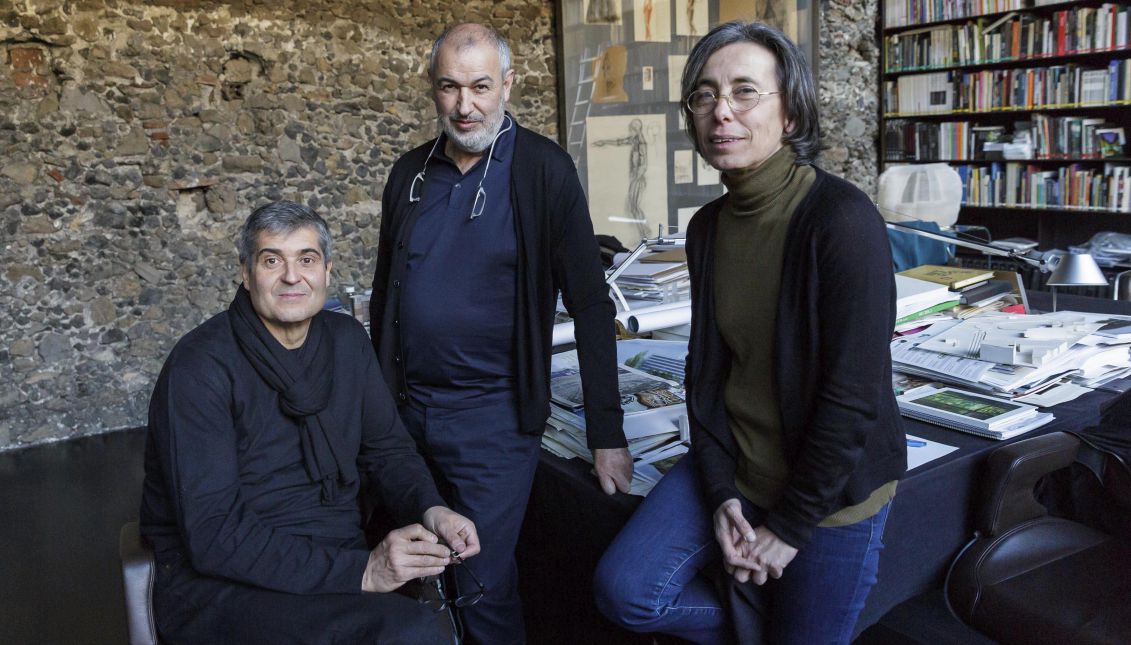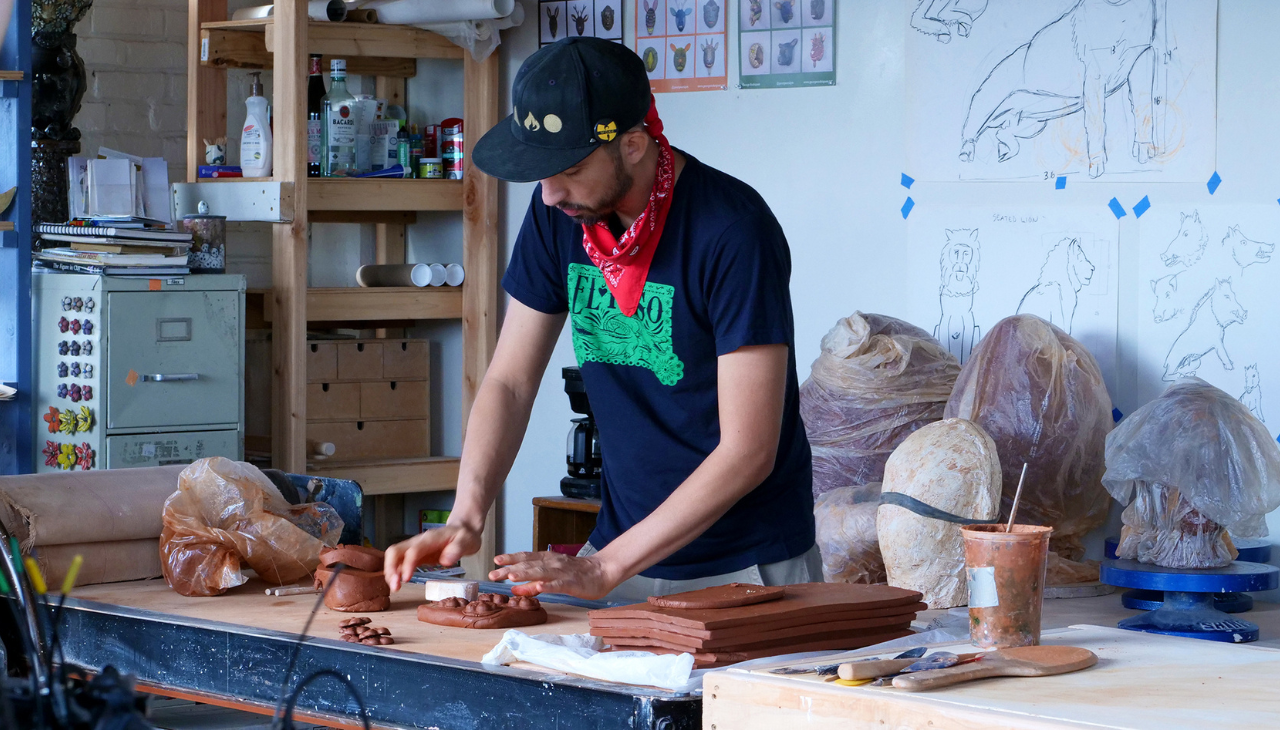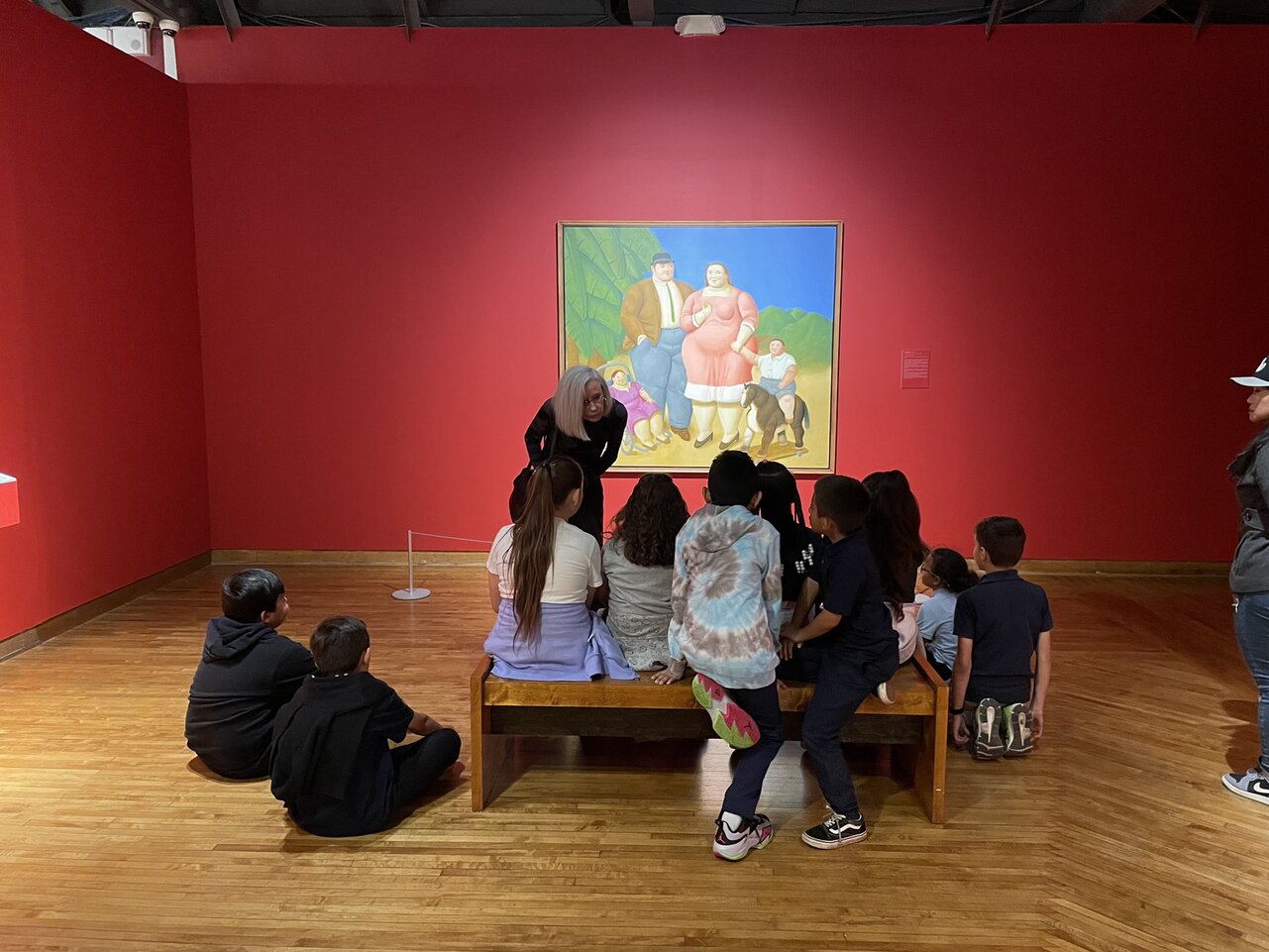
Architecture's Nobel Prize goes to a Spanish Trio that fusions Tradition and Globalization
Three Spaniards were awarded the 2017 Pritzker Architecture Prize on Wednesday for buildings that are intimately connected to the surrounding landscape.
Rafael Aranda, Carme Pigem and Ramon Vilalta, all of whom are from the Iberian nation's northeastern Catalonia region, have worked collaboratively since starting an architecture firm - RCR Arquitectes - in the town of Olot, a small town 70 miles away from Barcelona, in 1988.
"The collaboration of these three architects produces uncompromising architecture of a poetic level, representing timeless work that reflects great respect for the past, while projecting clarity that is of the present and the future," the jury's chair, Glenn Murcutt, said.
He praised the three for their creative and extensive use of modern materials such as recycled steel and plastic and for seeking connections between exterior and interior spaces.
"They've demonstrated that unity of a material can lend such incredible strength and simplicity to a building," Murcutt said.
Tom Pritzker, chairman of the Hyatt Foundation, sponsor of the award commonly regarded as the Nobel Prize in architecture, also praised the Spaniards' collaborative process.
"Their works range from public and private spaces to cultural venues and educational institutions, and their ability to intensely relate the environment specific to each site is a testament to their process and deep integrity," he said.
The jury citation added that the work of Aranda, Pigem and Vilalta showed that common ground could be found between globalism and the desire to preserve longstanding traditions.
"They help us to see, in a most beautiful and poetic way, that the answer to the question is not 'either/or' and that we can, at least in architecture, aspire to have both: our roots firmly in place and our arms outstretched to the rest of the world."
"The choice seems a pointed response to globalization and the contemporary political climate — last year’s Brexit vote and the election of Donald Trump in particular", writes Christopher Howthorne in the L.A Times.
Near the end of the citation from the nine-member jury, which this year includes former Pritzker winner Glenn Murcutt, architect Benedetta Tagliabue and the U.S. Supreme Court Justice Stephen Breyer, comes a paragraph that makes that interpretation essentially unavoidable.
“In this day and age,” it reads, “there is an important question that people all over the world are asking, and it is not just about architecture; it is about law, politics, and government as well. We live in a globalized world where we must rely on international influences, trade, discussion, transactions, etc. But more and more people fear that, because of this international influence, we will lose our local values, our local art, and our local customs. They are concerned and sometimes frightened.”
That last word seems a clear reference to the political backlash against globalization, political elites and cosmopolitanism that gave rise to the Brexit vote in the UK and Trump’s victory in November. The language of the citation suggests that the fear underlying those votes is not only justified but might be addressed and even tempered by a different approach to cultural production, beginning with architecture, reported the L.A Times.
Wednesday marked the first time in the award's 39-year history that it was conferred on a trio of architects.
One other Spaniard has been the recipient of the Pritzker Architecture Prize - Rafael Moneo in 1996.
Among the most notable projects credited to Aranda, Pigem and Vilalta are the La Cuisine Art Center in Negrepelisse, France; Soulages Museum (in collaboration with G. Tregouet) in Rodez, France; and Les Cols restaurant marquee in Olot.
 The Petit Comte Kindergarten located in Besalu, Spain built by Spanish architects Rafael Aranda, Carme Pigem and Ramon Vilalta. EFE/Hisao Suzuki/2017 Pritzker Architecture Prize
The Petit Comte Kindergarten located in Besalu, Spain built by Spanish architects Rafael Aranda, Carme Pigem and Ramon Vilalta. EFE/Hisao Suzuki/2017 Pritzker Architecture Prize










DEJE UN COMENTARIO:
¡Únete a la discusión! Deja un comentario.